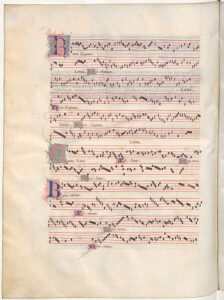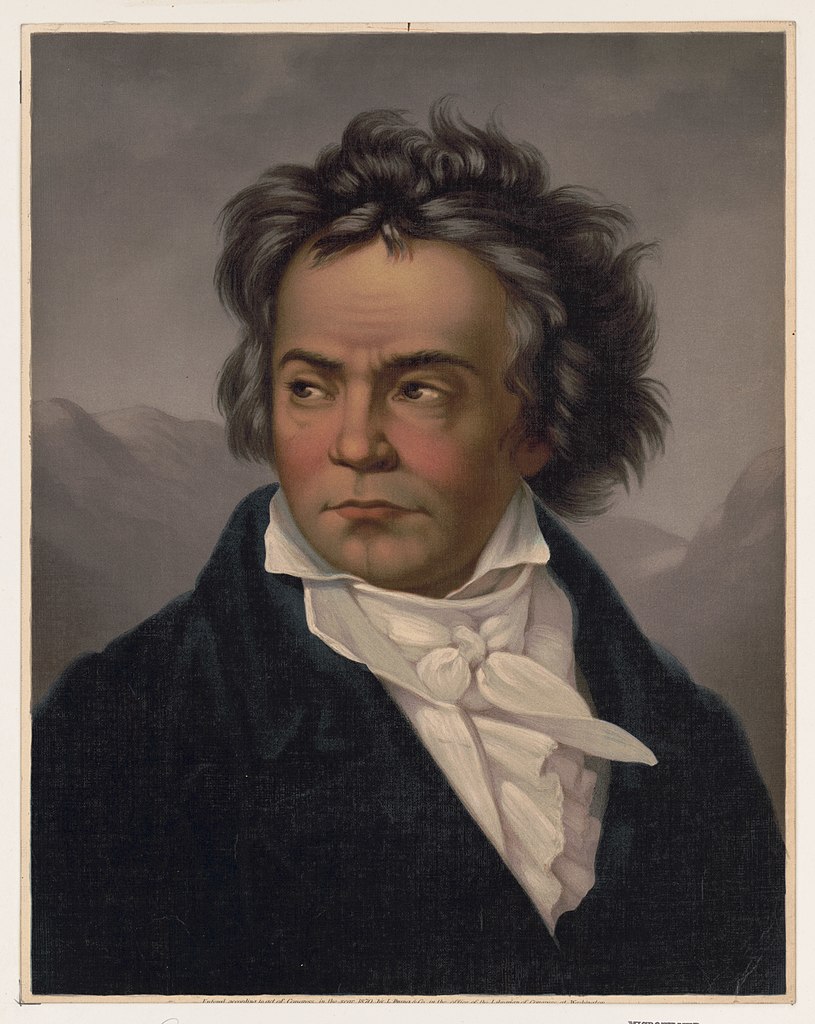Awhile back, I was working on a book on orchestrating for Heavy Metal music. Most orchestrated Metal is just bad.
Not going to call out names, but when I’ve heard several bands that actually have the budget to orchestrate their music, when they did, it sounded like garbage.
That’s because nobody’s willing to go back and read the old textbooks. I highly recommend Berlioz’s (updated by R Strauss) and even the more modern one from Walter Piston.
The following are selected parts of my historical introduction. You don’t have to be a Metalhead to appreciate what I wrote. Everyone who claims to appreciate Western art and/or culture should just know this stuff.
Western Classical Music can be divided can be divided into six periods:
1. The Medieval period
The Medieval period ranges into about the 15th century. I’ll be skipping this period entirely because to be quite honest, it would be such a small part of my study of orchestration that the only thing I really need to know is the time period.
The music simply wasn’t as advanced as later periods and Western Europe was just starting to use notation. Instruments were still quite crude.
I probably just pissed off a Medievalist but so be it. There’s simply no comparison between Medieval music and Baroque or Romanticism.

Giving credit where it’s due though, you still have to understand a few things about the period.
You did have melody, which was usually a single vocalist. Above, you see notation. Yes, that was developed during the Medieval period.
One serious problem though is that their notation didn’t give us clues about rhythm. What’s the rhythm of the above piece? That’s up for debate.
Second, yes, you did have melody. The melodies were crude but they were the forerunners of the Renaissance period.
2. The Renaissance period
The Renaissance period dates roughly 1400-1600. Once again, I’ll be skipping this period. Most of the instruments used during the Renaissance pretty much went extinct other than for period performances. They’re simply not used in modern orchestration, and from an orchestration standpoint, there wasn’t enough innovation to note down that many names.
I’ll occasionally listen to some of the Renaissance choir works for background music, but it really isn’t interesting enough to study.
3. The Baroque
The Baroque era ranges roughly 1600-1750. I personally do not like Baroque music, but historically, it’s where you must begin studying Classical music because of all the innovations done during this period. The most notable composers during this period were J.S. Bach, Handel, and Vivaldi.
You’ve heard pieces like “Toccata and Fugue,” “The Four Seasons,” and Pachelbels’ “Canon in D.” This period of music was hugely important as it gave us a lot of terminology that is still being used today.
We saw the beginnings of tonality, complex chord progressions, musical complexity, and most importantly for me – counterpoint. In fact, J.S. Bach’s use of counterpoint has never been surpassed and to this day, composers still study it. The Baroque period also gave us the musical genres of the concerto, operas, and sonatas.
If you’re wondering why I don’t like Baroque music, it’s personal taste. Baroque music went hand and hand with the Age of Reason and made too much sense. They followed too many rules and the music itself was too mathematical for my taste. You will see later on that the music I like rebels against those concepts.
4. The Classical period
The Classical period lasts roughly 1730-1820. I know, now we’re overlapping. It’s because there actually was a lot of overlap. J.S. Bach continued to compose Baroque music even when what we now call the Classical period already was in fashion. The three kings of the Classical period are Joseph Haydn, Wolfgang Amadeus Mozart, and Ludwig van Beethoven.
Ironically, both Mozart and Beethoven were students of Haydn. All three are from Vienna. Although more than likely, Mozart and Beethoven never met face to face.
Orchestras got bigger and the harpsichord was replaced by the piano, the latter which is a very important thing. Harpsichords are very limiting, whereas the piano is hands down the most important instrument ever invented.
I happen to have utmost respect for Haydn, who gave us the symphony and the string quartet. I have utmost respect for Mozart as well, who had he not died prematurely, would have followed Beethoven right into the Romantic era.
But I don’t like either of their music. It’s boring. It’s too structured. And it simply lacks the passion of what will become the Romantic era. I’m actually surprised that my favorite composer, Peter Tchaikovsky, loved Mozart as his primary influence.
5. The Romantic era
The Romantic era ranges from 1805 to WWI. You’ll hear Historians disagree on the dates of when the Romantic era was. This is my personal opinion. That said, my opinion is based on a pretty fucking strong knowledge of music, so I’m not some drunk jerk at a bar talking out of his ass.
Beethoven’s 3rd kicked off the Romantic era.

Yes, Mozart’s 40th had Romantic elements and that was way back in 1788. But that’s what I was saying earlier, had Mozart not died prematurely, he would have followed Beethoven right into the Romantic era.
So it goes. Mozart died, Beethoven didn’t.
Beethoven gets credit for the invention of Romantic music with his Third symphony. After Haydn, who was old and pretty much finished, heard Beethoven’s 3rd, he knew that his former student has surpassed him. He even declared “music will never be the same.”
What differentiates Romantic music from Classical music? Several things:
– In the Romantic era, the music was less structured, more free flowing, and sounded like it was written from the soul instead of the brain.
– In the Romantic era, the composer was the center of the piece. Classical music was written to entertain the rich, whereas Romantic music was written because the composer is a fucking genius and wants to show the world his greatness.
– Romantic music reflected Romantic art. It was a rebellion against the Age of Reason, where the artist felt that humanity became too rational and tried to rationalize everything and forgot how to be “human.”
– Romantic music was also a reaction against the Age of Industrialization. Back then, you’d have family members who literally got ground up to death in the machines. Romanticism idealizes a more simple time. They often idealized the Medieval age, for instance.
In my not so humble opinion, the Romantic era of Western Classical music produced the greatest music the world has ever known. Beethoven. Tchaikovsky. Wagner. Brahms. Mendelssohn. Chopin. Rachmaninoff. Etc. These guys have never been surpassed.
6. The Modern era
The Modern era is from 1890 on. Romanticism already was dying before WWI started, but WWI was the official death of Romanticism as WWI was Europe’s suicide. Artistically, Europe never did recover. I know I’m going to offend a lot of people saying this, but it’s true. Take the music written after the Romantic era and it simply doesn’t hold up. I love Prokofiev and Shostakovitch, but not much else could really compare to the music written in the Romantic era.
And while we’re at it, take a trip to the Prado and the Louvre. Compare the artwork from the Renaissance to 1914 and 1914 to today and there’s no comparison.
Modern art comparatively sucks. I may lose a few friends saying this, but so be it. I have a very strong opinion about this because I have done my homework. If you have a problem with what I just said, I suggest you find me examples. I could suggest a few that hold up – Picasso’s Guernica and a few pieces by Dali (and yes, I’ve seen this all in real life). But those are exceptions. Pre-WWI art kicked modern art’s pretentious butt.
Take a look at the architecture as well. Pre-WWI European architecture had soul. Post-WWI European architecture is soulless shit.
Back to the Modern era of music – it started in the 1890s with Impressionistic music. Impressionistic music actually came from Romanticism. Composers though were trying to do something new and started doing something so different that it was no longer Romantic. That’s evolution though, for better or worse, art always moves forward.
Modern music further broke all the rules. Although late Romantic composers fooled around with atonal music, Modern period composers took it all the way. Late Romantic composers also fooled around with alternative scales, including whole tone scales. But once again, Modern period composers took that all the way.
The music started breaking down structure more and more, desperately trying to sound different from the previous guy, until music stopped making any sense. You can find some Modern composers where you wonder if you can even consider it music.
Some of it though was brilliant. I happen to love Prokofiev’s 5th as it sounds like war. It’s hideous and brutal and you can visualize the tanks and the machine guns coming closer and closer. There are other pieces in the Modern era I really love, like Ravel’s “La Valse.” It’s an overblown almost twenty minute waltz that breaks every rule in the book, although still manages to be a waltz.
Most of it though, I just find boring as it becomes musical masturbation. The composer no longer composes anything beautiful. Rather, he’s just a pretentious douchebag who screams “look how original I am!”
Yes, I’m highly opinionated and there’s definitely not a consensus with everything I’ve said. If you’re going to quote me for school, do it at your own risk. You’ll find a lot of music professors will say I’m a jerk but others will say I’m the only one with balls to say all the things we all know but are afraid to say in public.
